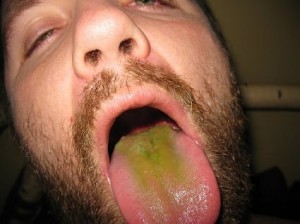When most people think of Driving Under the Influence of Intoxicants, they think of drunk driving – that is, they think of someone under the influence of alcohol. But in Oregon, and most other jurisdictions, alcohol doesn’t have to be involved for a DUII to be charged. Impaired driving is illegal whether it’s caused by alcohol or some other controlled substance. I’ve already discussed breathalyzers and how basic alcohol DUII investigations work in Oregon. Now let’s discuss what happens if the officer believes a person is driving impaired but the breathalyzer results show no alcohol.
DUII Can Involve Any Controlled Substance
A person who drives on a public road while under the influence of a controlled substance or inhalant can be charged with DUII in Oregon. A controlled substance is any drug classified under the federal Controlled Substances Act. This includes commonly known illegal drugs, such as methamphetamine, heroin, and cocaine. It also includes many prescription drugs, such as Ambien, oxycodone, and Xanax. It even involves marijuana, even if the person driving holds a valid medical marijuana card. Generally over the counter drugs do not fall in this category. The fact that a drug is taken pursuant to a prescription does not mean that a person can drive while under the influence of that drug; if the person is impaired to a noticeable and perceptible degree, that person can still be convicted of DUII.
Controlled Substance DUII Investigation Involves a DRE
Most controlled substance DUII investigations start with the same basic format as an alcohol DUII. But if the breathalyzer results says there is no alcohol in the person’s system, or there is far less alcohol than expected based on the person’s behavior, then the officer will ask for a Drug Recognition Expert (DRE) to perform a more thorough investigation. The DRE investigation is a twelve-step process that involves more intensive testing than the usual Field Sobriety Tests. If the DRE believes that the person is under the influence of a controlled substance then the DRE makes an educated guess as to what the substance is. The final step is then to have the person give a urine sample so that the police can confirm whether the substance is actually present in the person’s system. If it is, then the person is likely to face a DUII charge.
Controlled Substance DUII’s Can be Fought
There are many possible ways to attack allegations of impaired driving based on controlled substances. For starters, the state must charge the person correctly; if the state fails to specify that the DUII is based on controlled substances then the case can fall apart. The DRE process is also considered scientific, so in order for the final results to come in against a person at trial each step must be performed in exactly the correct manner. If the DRE guesses the substance wrong then the whole case can be thrown out, even if the person was under the influence of something different. As with all DUII’s, alcohol or otherwise, there is always room to challenge whether the officer originally had enough reason to believe the person was under the influence of intoxicants.  An amusing recent example is this article talking about the phenomenon of officers claiming that a “green tongue” is adequate reason to believe that a person has recently smoked marijuana. Finally, even if the state can prove that a person has a controlled substance in their system, the district attorney still must prove that the substance was actually impairing the person at the time of driving. Unlike alcohol, which leaves a person’s system quickly, many drugs remain in the body for long periods of time. Simply proving that a person has some marijuana in their system does nothing to prove when the marijuana was consumed and whether the person was being influenced by it at the time they were driving. There are many ways to fight a controlled substance DUII allegation. If you find yourself charged, speak to an experienced DUII attorney before taking any action on your case.
An amusing recent example is this article talking about the phenomenon of officers claiming that a “green tongue” is adequate reason to believe that a person has recently smoked marijuana. Finally, even if the state can prove that a person has a controlled substance in their system, the district attorney still must prove that the substance was actually impairing the person at the time of driving. Unlike alcohol, which leaves a person’s system quickly, many drugs remain in the body for long periods of time. Simply proving that a person has some marijuana in their system does nothing to prove when the marijuana was consumed and whether the person was being influenced by it at the time they were driving. There are many ways to fight a controlled substance DUII allegation. If you find yourself charged, speak to an experienced DUII attorney before taking any action on your case.